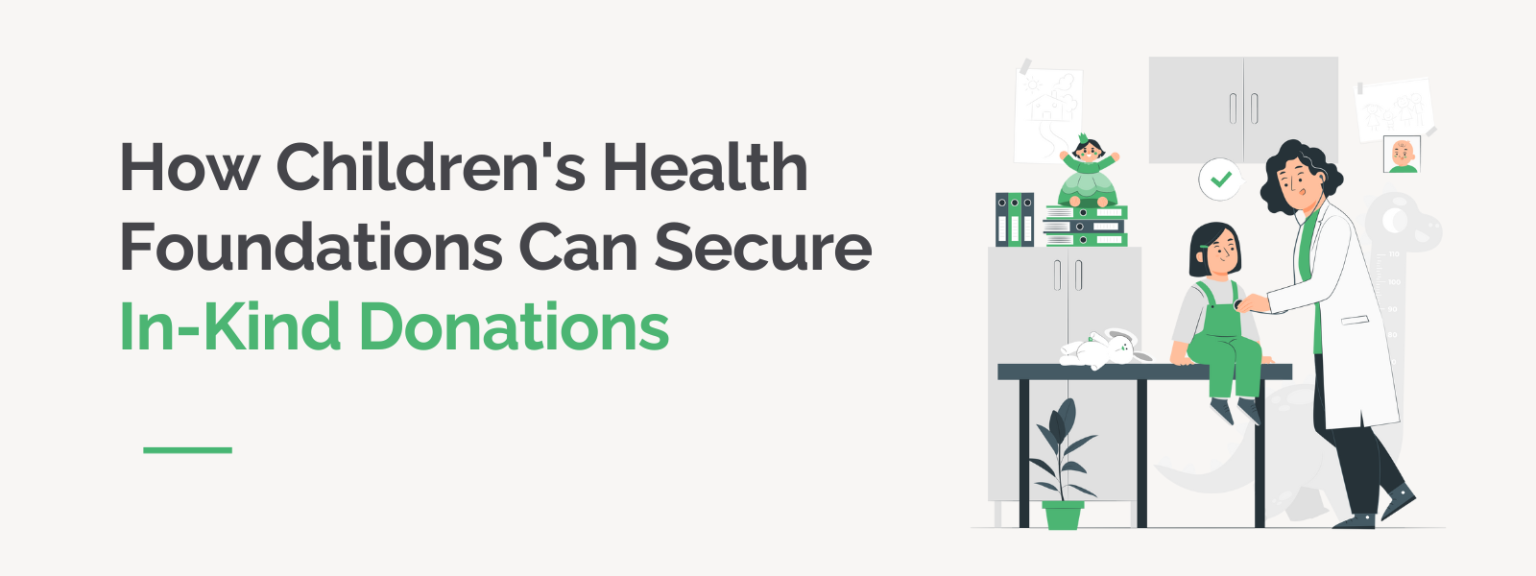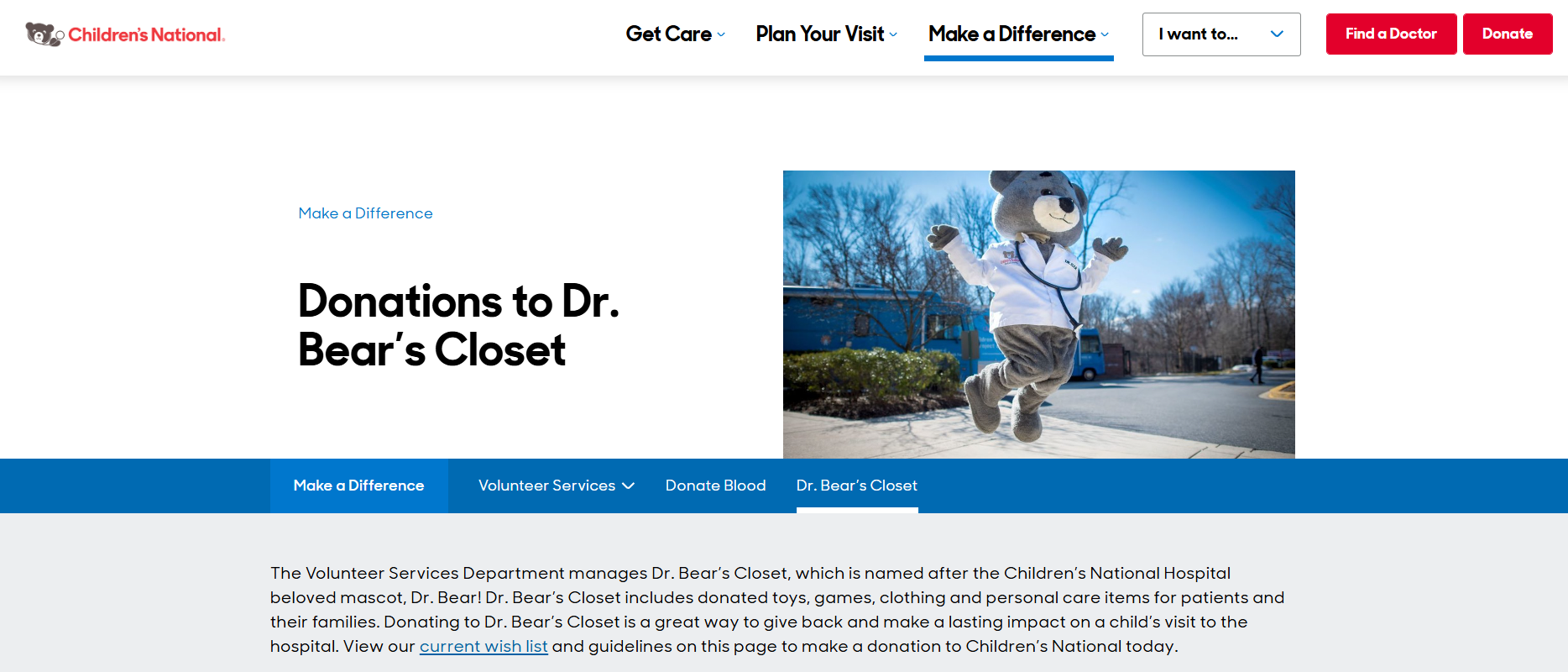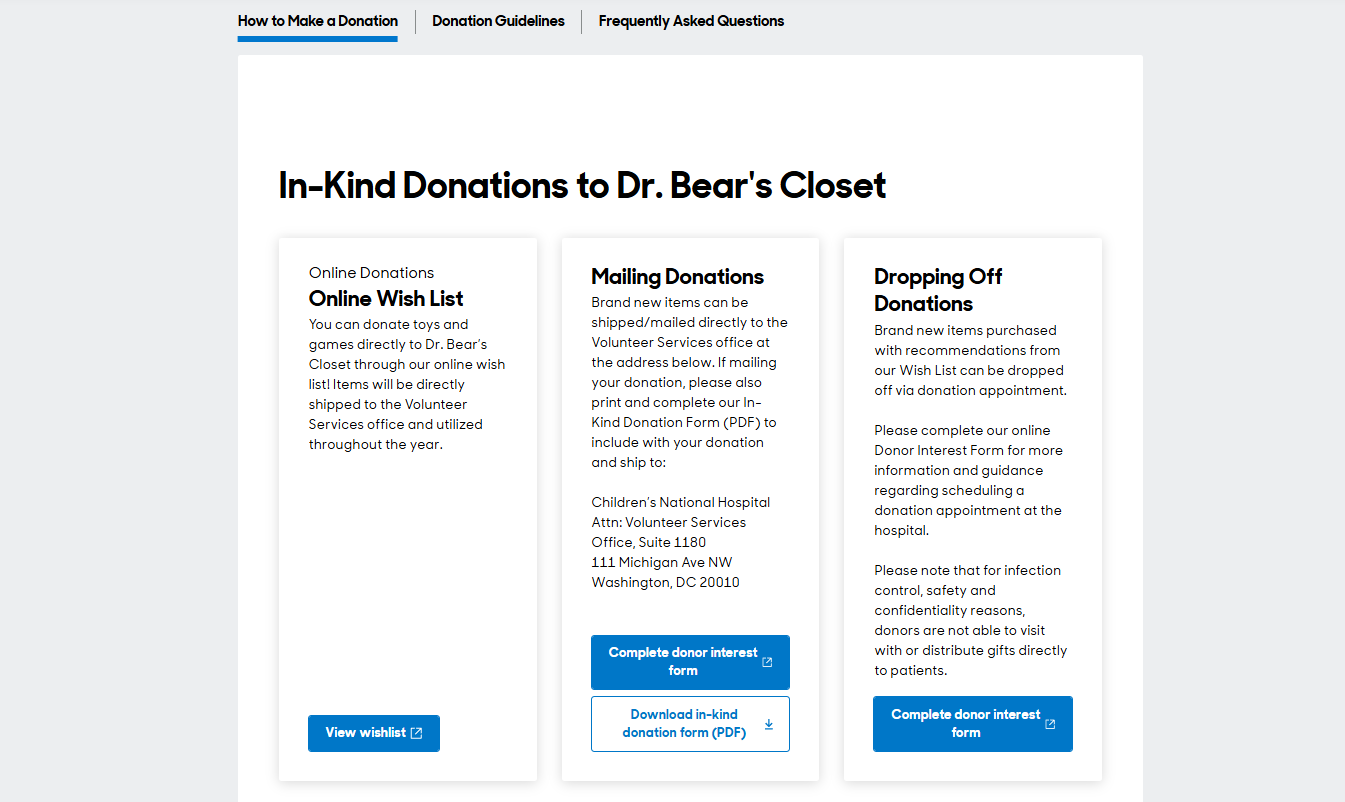How Children’s Health Foundations Can Secure In-Kind Donations
Children’s health foundations play a vital role in supporting the well-being and development of children facing medical challenges. These organizations often rely on a variety of resources to fulfill their mission, and in-kind donations represent a powerful avenue to supplement traditional fundraising efforts. Unlike cash gifts, in-kind donations provide tangible goods or services that directly support program delivery, reduce operational costs, and enhance the experience of children and families served.
Securing in-kind donations requires a strategic approach tailored to the unique needs of these organizations. Children’s health foundations benefit immensely from contributions such as medical equipment, toys, and educational tools that improve care environments and patient outcomes. By understanding how to identify, request, and steward these gifts, development professionals can unlock new opportunities to advance their mission.
In this article, we will explore what in-kind donations are, the types most valuable to children’s health foundations, where to find potential donors, and best practices for making the ask. We will also introduce tools that can streamline the process, helping your team maximize impact through smarter fundraising strategies.
Table of Contents
- What Are In-Kind Donations for Children’s Health Foundations?
- Types of In-Kind Donations for Children’s Health Foundations
- Where Children’s Health Foundations Should Look for In-Kind Support
- How Children’s Health Foundations Should Make the In-Kind Donation Ask
- Tools and Resources to Help Children’s Health Foundations Get Started
- Get Inspired: How Children’s National Secures In-Kind Donations
What Are In-Kind Donations for Children’s Health Foundations?
In-kind donations refer to non-cash gifts provided to a nonprofit organization. These can include physical items like equipment, supplies, or products, as well as services such as professional expertise, volunteer time, or event support. Unlike traditional monetary donations, in-kind gifts directly supply the resources needed to operate programs or maintain facilities without requiring the nonprofit to purchase them on its own.
For organizations across all sectors, in-kind donations offer a way to stretch limited budgets and access specialized goods or services that might otherwise be cost-prohibitive. They also foster partnerships with businesses and community members who want to contribute in ways beyond writing checks.
When it comes to children’s health foundations, in-kind donations take on particular significance. These organizations often require specialized medical equipment and supplies to support pediatric care, as well as items that create a welcoming and comforting environment for children and their families. By securing these gifts, Children’s Health Foundations can allocate more financial resources toward direct patient services and innovative programs. In-kind donations thus become a strategic asset that enhances both mission delivery and donor engagement.
How In-Kind Donations Complement Cash Gifts
While cash donations offer flexibility, in-kind gifts provide specificity and immediacy. For example, a donation of pediatric medical monitors from a healthcare technology company directly equips a clinic, whereas cash might be used to purchase such equipment later. Both forms of giving are essential, but in-kind donations often fill critical gaps and reduce procurement timelines.
Moreover, in-kind donations can deepen corporate relationships by aligning a company’s products or services with the nonprofit’s mission. This alignment fosters authentic partnerships that benefit both parties and ultimately improve outcomes for children served.
Types of In-Kind Donations for Children’s Health Foundations
Children’s Health Foundations can benefit from a diverse range of in-kind donations that support their programs and operations. Below are some specific examples that illustrate the breadth and impact of these gifts.
Medical Equipment and Supplies
Donations of pediatric medical equipment, such as monitors, wheelchairs, or specialized beds, are invaluable. These items directly enhance the quality of care and comfort for young patients. Additionally, supplies, including bandages, gloves, and sanitizers, help maintain a safe and hygienic environment, thereby reducing infection risks.
Toys and Games
Providing toys, games, and creative play materials helps children cope with stress and anxiety during medical treatments. Such donations can brighten hospital rooms and create positive distractions that support emotional healing.
Online Learning Tools
Educational software and digital learning platforms enable children to continue their studies while hospitalized or recovering at home. These tools support cognitive development and help maintain a sense of normalcy during challenging times.
Snacks and Nutritional Products
Healthy snacks and nutritional supplements can improve patient well-being and provide significant comfort. These items are especially important for children with dietary restrictions or those undergoing treatments that affect appetite.
Furniture and Facility Supplies
Comfortable furniture for waiting rooms, play areas, and patient rooms enhances the environment and the overall experience for families and staff. Meanwhile, donated cleaning supplies ensure that facilities remain safe and sanitary, which is critical in healthcare settings.
Professional Services and Skilled Volunteer Work
Beyond physical goods, services such as legal advice, marketing support, or transportation can be donated to build organizational capacity. Skilled volunteers can assist with event planning, IT support, or patient engagement initiatives, providing cost-saving benefits and expertise.
Where Children’s Health Foundations Should Look for In-Kind Support
Identifying potential sources of in-kind donations requires a strategic approach. As a result, children’s health foundations should begin by researching companies with corporate social responsibility programs that align with their mission of improving children’s health and well-being. Many businesses prioritize community impact and seek partnerships with nonprofits that reflect their values.
Below is a list of companies known for their in-kind giving programs that align well with the needs of children’s health foundations:
Clorox
Clorox often donates cleaning supplies and disinfectants, which are essential for maintaining sterile environments in healthcare settings. Their support helps children’s health foundations uphold high standards of hygiene and safety.
IKEA
IKEA provides furniture donations that create comfortable, child-friendly spaces in hospitals and clinics. Their products help transform clinical environments into welcoming areas for children and families.
Wayfair
Similarly, Wayfair offers a wide range of furniture and home goods that can be used to furnish patient rooms, waiting areas, and administrative offices. Their donations contribute to a more supportive atmosphere for care delivery.
Gerber
Gerber donates nutritional products and snacks tailored for infants and young children. These donations support the dietary needs of pediatric patients and promote healthy growth during treatment.
Danone
Danone provides specialized nutritional supplements and snacks that cater to children with medical dietary requirements. Their contributions enhance overall patient care and comfort.
Publix
Publix supports nonprofits through food donations, including healthy snacks and meal items. Their community engagement aligns with efforts to nourish children undergoing medical care.
Hasbro
Hasbro donates toys and games that help children cope with hospitalization and medical procedures. Their gifts foster joy and distraction, which are essential for emotional healing.
Build-A-Bear
Build-A-Bear offers stuffed animals and comfort items that provide emotional support to children facing health challenges. These donations create a sense of companionship and security.
Philips Healthcare
Philips Healthcare donates advanced medical equipment and technology that improve diagnostic and treatment capabilities. Their support directly enhances clinical outcomes for pediatric patients.
3M
3M provides medical supplies and safety products that help maintain infection control and patient safety. Their donations are critical to operational excellence in healthcare environments.
How Children’s Health Foundations Should Make the In-Kind Donation Ask
Making a thoughtful and strategic ask for in-kind donations is essential to building lasting partnerships with corporate donors. A well-crafted approach demonstrates professionalism, aligns the nonprofit’s needs with the company’s goals, and makes it easy for businesses to say yes.
Here’s how you can do so:
Start by personalizing outreach efforts. Research the company’s mission, past giving history, and values to tailor your message. Highlight how your organization’s work complements their CSR objectives and community impact priorities.
Clearly articulate what specific items or services you need and explain how these donations will be used to benefit children and families. Providing concrete examples helps donors understand the tangible impact of their support.
Communicate the benefits to the company, such as increased visibility through event recognition, enhanced community goodwill, opportunities for employee engagement, and potential tax incentives. Emphasizing mutual value strengthens the case for partnership.
Offer flexible giving options to accommodate different donor capacities. This might include physical product donations, gift cards, sponsorship of events, or provision of professional services. Flexibility increases the likelihood of securing support.
Finally, make it easy for donors to follow through by providing a detailed wish list, shipping instructions, and a dedicated contact person. Clear communication and responsiveness throughout the process foster trust and encourage repeat giving.
Tools and Resources to Help Children’s Health Foundations Get Started
Leveraging dedicated tools can significantly streamline the process of identifying and securing in-kind donations. Many companies have established donation programs with specific application procedures, but these opportunities are often scattered across multiple platforms and websites, making it difficult to track on your own.
Using a centralized resource saves time and effort by aggregating information about corporate giving programs, eligibility criteria, and application links. This enables children’s health organizations to quickly uncover companies whose CSR initiatives align with their missions.
For example, Double the Donation offers a comprehensive corporate giving program database that includes thousands of verified programs, covering in-kind donations, grants, and workplace giving. This platform empowers nonprofit professionals to identify high-value corporate partners and manage relationships effectively, giving them a competitive edge in securing critical resources.
Get Inspired: How Children’s National Secures In-Kind Donations
Children’s National Hospital provides a premier model for how health foundations can use digital tools to drive donations of physical goods that directly improve patient outcomes. By hosting a specialized “Dr. Bear’s Closet” landing page, the hospital transforms the often-unstructured process of in-kind giving into a professionalized revenue stream.
View the web page here: https://www.childrensnational.org/make-a-difference/donations
This intentional web design is essential for foundations that manage high-overhead pediatric environments, where items such as toys, books, and clothing are vital for providing comfort and distracting young patients during clinical procedures.
Simplifying Complex In-Kind Logistics
The primary barrier to corporate in-kind giving is the logistical burden of coordinating drop-offs and ensuring item safety. Children’s National solves this by providing a clear, three-tiered framework for support:
- Online Wish Lists: The hospital utilizes a fundraising tool to host digital registries, allowing corporate donors to purchase pre-vetted items that ship directly to the Volunteer Services office.
- Direct Mailing Protocols: For businesses with existing inventory, the foundation provides downloadable in-kind donation forms and explicit shipping instructions to ensure tax acknowledgments are processed accurately.
- Scheduled Drop-Offs: To maintain strict infection control, the hospital requires donation appointments, which can be coordinated through a central “Donor Interest Form.”
This structured approach is increasingly critical, as in-kind donations to health-related organizations have surged in recent years. By acting as a concierge for its donors, the hospital ensures that corporate social responsibility (CSR) managers can easily align their surplus inventory with mission-critical patient needs.
Wrapping Up & Additional Resources
Securing in-kind donations is a strategic way for children’s health foundations to enhance their programs, reduce costs, and deepen community partnerships. By identifying specific needs, researching aligned corporate donors, and making thoughtful asks, nonprofits can unlock valuable resources that directly benefit children’s health and well-being.
Utilizing tools like Double the Donation’s corporate giving database streamlines the process, saving time and expanding access to high-impact opportunities. Taking these first steps empowers your team to build sustainable in-kind donation strategies that support your mission and amplify your impact.
Maximize Your In-Kind Donation Potential with Double the Donation
Corporate sponsorships and in-kind donations are critical to the success of nonprofit events and programs, but sourcing the right partners can be time-consuming and overwhelming. Double the Donation streamlines the entire process, helping your team find, secure, and manage corporate support with ease.
With our industry-leading corporate giving database, you can quickly identify companies that offer financial sponsorships, in-kind donations, and corporate grants, giving you a data-driven edge in building meaningful partnerships. Raise more with corporate grants and in-kind gifts; get a demo today!






